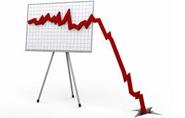Market Data

January 15, 2016
Empire State Manufacturing Survey Plunges in January
Written by Sandy Williams
New York manufacturers experienced their worse business conditions since the 2007-2009 recession, according to the January Empire State Manufacturing Survey. All indexes for current conditions were in negative numbers except those for pricing.
The survey for general business conditions index fell 13 points to -19.4. Indexes for new orders and shipments plummeted by double digits to -23.5 and -14.4, respectively.
Bloomberg called the report “grim” and said that January factory activity “appears to be getting hit by global concerns.”
The unfilled orders index rose 5 points to -11.0 and the delivery times shortened as indicated by a drop of 5 points to -13.0 on the delivery time index. Inventory reduction continued during the last survey period, but at a slower pace than December.
Pricing indexes were positive in the January survey. Prices paid rose 12 points to 16.0. Selling prices reversed its four month decline with an increase of 8 points to register at 4.0.
The employment indexes remained negative but improved slightly.
Looking ahead to the next six months, manufacturer optimism about future business conditions fell sharply. The index for future business plunged 26 point to 9.5—its lowest level since 2009. Future new orders and future shipment indexes were halved in the January survey.
“Federal Reserve officials have said they expect domestic demand to keep the economy growing despite weakness in manufacturing,” wrote Gregg Robin, Morningstar Marketwatch. “Officials have generally remained on board with their forecast of four quarter-point rate hikes this year. But the new downturn in the factory sector may give the U.S. central bankers pause. The market is already pared back its expectations of rate hikes this year, which were already below the U.S. central bank’s projections.”
The Empire State Manufacturing Index is conducted monthly by the Federal Reserve Bank of New York.







